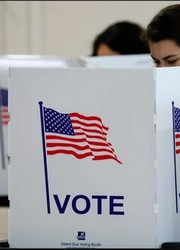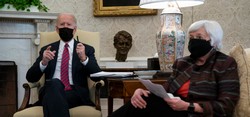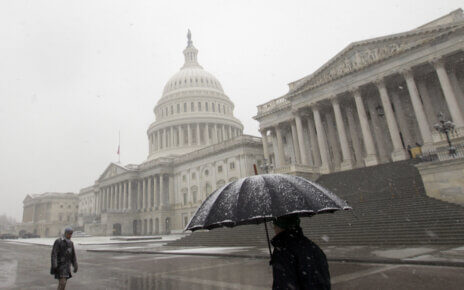A federal appellate court ruled that Florida can bar ex-felons from voting if they owe court fees or fines related to their convictions, even if they are unable to pay, on Friday, Sept. 11.
The 11 Circuit Court of Appeals 6-4 ruling overturned a lower court’s ruling that negated parts of Florida’s GOP controlled legislature’s law that conditioned the right to vote for former felons on payment of all financial obligations associated with their respective sentences.
Chief Judge William Pryor wrote in the majority opinion that the law does not constitute a poll tax, rather “it promotes full rehabilitation of returning citizens and ensures full satisfaction of the punishment imposed for the crimes by which felons forfeited the right to vote,” he said. “Monetary provisions of a sentence are no less part of the penalty that society imposes for a crime than terms of imprisonment.”
Johanna Foster, Ph.D., an Associate Professor of Sociology, said of the majority opinion, “On the face of it, that argument may sound reasonable, but Chief Justice Pryor most certainly knows the facts that people who have not paid court fines are disproportionately poor, and disproportionately people of color.”
“For people to be productive when they return to society, they need greater access to political power to organize and change the systems that make ‘productive citizenship’ a challenge,” she continued.
The denial of voting rights to formerly incarcerated persons mixes with the exclusion felt from their communities, and “does nothing to promote rehabilitation,” explained Eleanor Novek, a Professor of Communication whose research is focused on incarcerated persons. Some reports, she noted, have linked civic engagement to lower rates of recidivism.
A study conducted by the University of Pittsburg found that reversing felon disenfranchisement laws that restricted voting rights led to an increase in trust and cooperation with the government.
Sean Bell, the founder of the Alternative to Violence Project (AVP) in Orlando, Florida, who became involved with AVP while serving time in Garden State Correctional Facility, mentioned that Florida has reported having roughly 774,000 disenfranchised felons. “How do you cut that number down by adding stipulations? A lot of people aren’t in a position to pay off their fines, or they have a lot,” he said.
Felon disenfranchisement violates the Universal Declaration of Human Rights, explained Brittany Macaluso, a senior social work student. “Article 21 states, ‘everyone had the right to take part in the government of his/her country directly or through freely chosen representatives.’ As an individual reentering society, being part of a community that is accepting of you is critical for rehabilitation.”
“In Florida, they are deliberately showing these returning citizens that they have no community in the democratic process, arguably one of the most important aspects of life as an American citizen,” Macaluso said.
Owen Harper, a junior criminal justice student, said, “to say that seizing a person’s right to vote ‘promotes full rehabilitation’ is a ridiculous assertion.” A key issue in reintegration following incarceration is the detachment from processes in everyday life. Furthermore, the idea that fines are part of ones’ sentence is true, but the restriction of voting due to unpaid fines is irrelevant to satisfying that punishment and will never enable timely payment, he explained.
Under the guise of promoting rehabilitation, the ruling, issued two months before the presidential election, will bar District Judge Hobert Hinkle’s permanent injunction against the Florida legislature’s law from going into effect.
Hinkle held an eight-day trial that found the majority of felons in Florida would be unable to pay the court fees owed, and that the law amounted to an unconstitutional poll tax. Now, 1.4 million former felons will be prevented from registering to/ or voting this November.
Novek believes it “seems obvious” that the conflation of finances and voting rights amounts to an unconstitutional poll tax. Even when the economy is doing well, people with felony records face employment discrimination, so
“withholding the vote until they have paid all fines and fees essentially deprives them of the right to vote indefinitely.”
The law around denying voting rights to “justice-involved” persons, and the implementation of complex court procedures and fees are “directly related to barriers white elites impose against poor people and people of color to retain political and economic influence,” Foster elaborated.
Harper is inclined to view this law as an unconstitutional poll tax but that it hinges on “semantics.” “The 24 Amendment bars any state from restricting the right to vote by reason of ‘failure to pay a poll tax or any other tax.’ Does a fine constitute a tax? You could say that fines levied against felons for their actions are just ‘crime taxes’ if you were so inclined, thus satisfying the comparison,” he clarified.
“Either way, the government is requiring compensation for the right to vote, which at its most basic level is the same as levying a poll tax regardless of what we call it,” Harper said.
This law plays into the historical record of using felony disenfranchisement to support laws suppressing the black and brown vote, as evidenced by gutting the Voting Rights Act, rising voter ID laws, and movement led by racial justice advocates to end felony disenfranchisement laws, Foster explained. “There is no question in my mind that we are seeing another instance of the politicization of the judicial branches of government.”
The ruling displays partisan overtones as half of the court’s judges are President Trump’s appointees. Florida has been won by both parties in past elections, and with 29 electoral votes, it is valuable state to win. “In a state with over 16 million adults, 1.4 blocked voters are very significant,” Harper said.
“And consider the proximity to the presidential election as well. I think it is a partisan effort at voter suppression, as well as an attempt to keep up the conservatives’ ‘tough on crime’ attitude,” he continued.
In 2000, a margin of 537 voters made the difference between Bush and Gore in Florida. Ex-felons were denied the right to vote, and people of color with no criminal-justice involvement were turned away from the polls.
“This ruling could absolutely impact the November election,” Foster said. “As we now know quite clearly, if there had not been felony disenfranchisement laws in place in Florida in 2000, the voter turnout would surely been such that the vote would have gone for Gore.”
IMAGE TAKEN from The Hill



